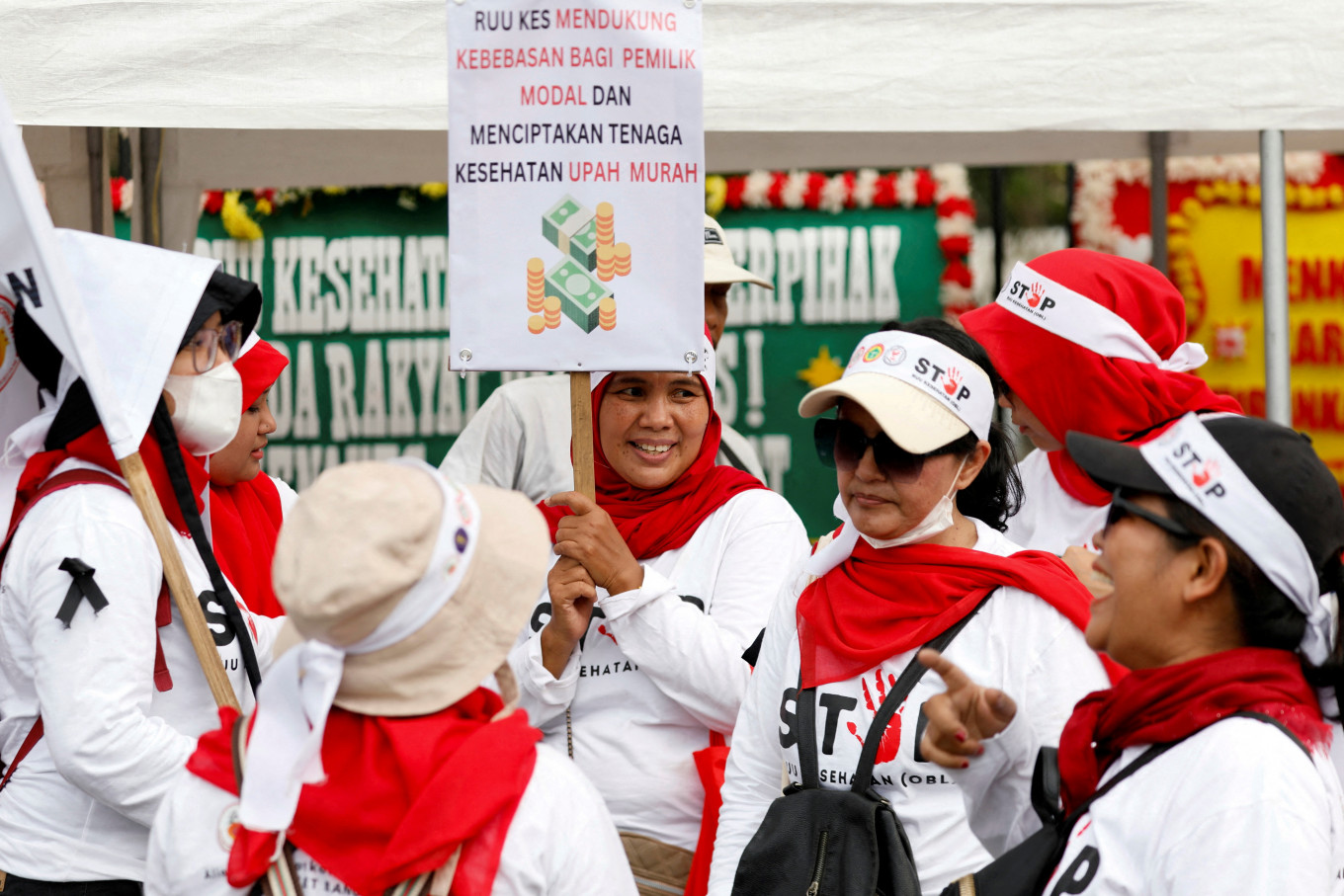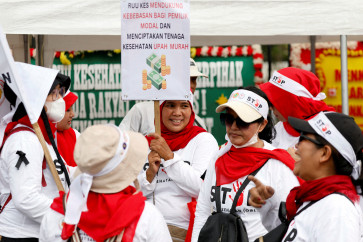Popular Reads
Top Results
Can't find what you're looking for?
View all search resultsPopular Reads
Top Results
Can't find what you're looking for?
View all search resultsNew health bill a chance to help eradicate sexual violence
The omnibus bill on health is an opportunity to create gender-sensitive provisions that will ultimately contribute to reducing sexual violence in Indonesia.
Change text size
Gift Premium Articles
to Anyone
S
exual violence in Indonesia is more than ever in grave need of serious measures, Kompas.com reported in December 2021. From 2021 to 2022, the number of reported sexual violence cases rose from 1,887 (Komnas Perempuan, 2022) to 2,228 (Kompas.com, 2023). Sexual violence is always an iceberg phenomenon, in which the actual number of cases is much higher than reported.
Last year, the long overdue Sex Crimes Law was ratified as a response to the crisis.
The omnibus law on health, if passed, will provide an avenue to prevent and reduce sexual violence in the country. The new health law could potentially support the implementation of the Sex crimes Law, since it covers overlapping aspects and therefore must be aligned and harmonized.
The health bill should ensure that health care includes the necessary services to prevent, mitigate and reduce the harms of potential and actual sexual violence cases. However, the latest draft being deliberated at the House of Representatives shows some limitations and potential room for improvement. The draft has not fundamentally incorporated and mainstreamed a gender perspective throughout its substance, particularly in the following three topics: reproductive health, abortion and healthcare services.
First, Article 39 of the health bill states that “everyone is entitled to live a reproductive and sex life that is healthy, safe and free from discrimination, coercion and/or violence by respecting values that do not degrade human dignity in accordance with religious norms”.
Acknowledging religious and social norms, as well as local context, is important in drafting a regulation. However, this could also bring risks, since stating “religious norms” in a legal article will open up a chance for multiple interpretations, especially for healthcare facilities and providers. In contrast, health services should be universal and accessible to everyone.
Healthcare providers of different values and religions might give different treatment standards, especially to victims of sexual violence, who are often stigmatized. Thus, this may harm the effort to provide equal and rights-based health services. That might also hinder the effort to give access to information on sexual and reproductive health to populations who are considered “too young”, “unmarried” and such, which might further worsen the risks of sexual violence.



















